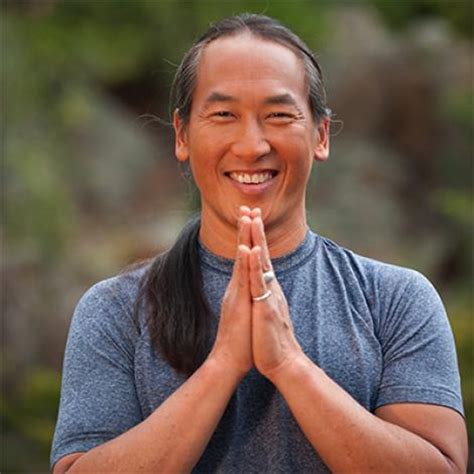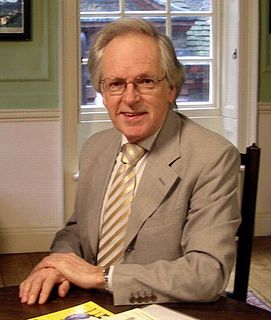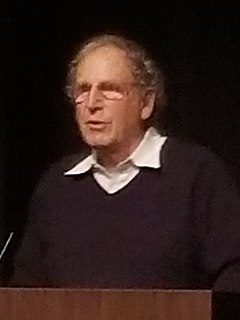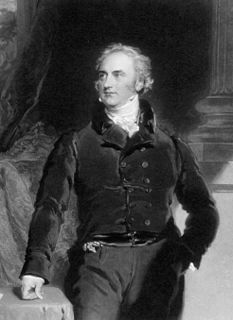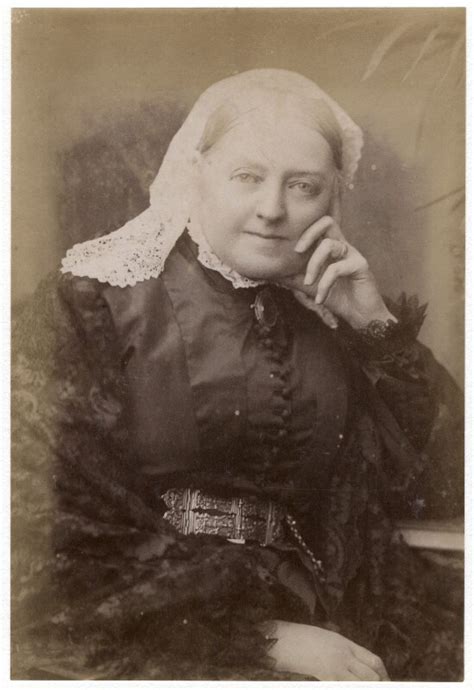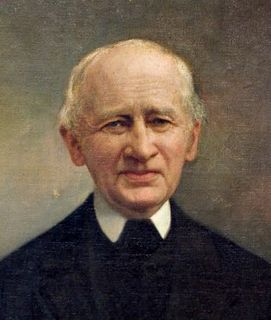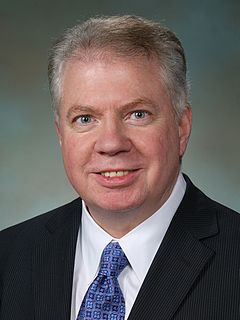Top 959 Observation Quotes & Sayings - Page 15
Explore popular Observation quotes.
Last updated on April 21, 2025.
There is no such thing as absolute truth and absolute falsehood. The scientific mind should never recognise the perfect truth or the perfect falsehood of any supposed theory or observation. It should carefully weigh the chances of truth and error and grade each in its proper position along the line joining absolute truth and absolute error.
The foundations of population genetics were laid chiefly by mathematical deduction from basic premises contained in the works of Mendel and Morgan and their followers. Haldane, Wright, and Fisher are the pioneers of population genetics whose main research equipment was paper and ink rather than microscopes, experimental fields, Drosophila bottles, or mouse cages. Theirs is theoretical biology at its best, and it has provided a guiding light for rigorous quantitative experimentation and observation.
Art that means anything in the life of a community must bear some relation to current interpretations of the mystery of the universe. Our rigid separation of the humanities and the sciences has temporarily left our art stranded or stammering and incoherent. Both art and science ought to be blended in our early education of our children's emotions and powers of observation, and that harmony carried forward in later education.
Being satisfied, from observation and experience, as well as from medical testimony, that ardent spirit as a drink is not only needless but hurtful; and that the entire disuse of it would tend to promote the health, the virtue, and the happiness of the community, we hereby express our convention that should the citizens of the United States, and especially ALL YOUNG MEN, discontinue entirely the use of it, they would not only promote their own personal benefit, but the good of our country and the world.
When people endure a traumatic event, they are either defeated or made stronger. On Sept. 11, I told New Yorkers, 'I want you to emerge stronger from this.' My words were partially a hope and partially an observation that people in New York City handle big things better than little things. I could not be more proud of the way my city responded.
I'm with the president nearly every day. We engage in complex conversations about some of the most weighty matters facing the world. I deliver to him this exquisite product that's been developed by my officers. He engages in a way that shows his understanding of the complexity. He asks really hard questions. He delivers policy outcomes based on the information that we provide him. My observation of the president is that, we deal in serious matters.
He who lets the world, or his own portion of it, choose his plan of life for him, has no need of any other faculty than the ape-like one of imitation. He who chooses his plan for himself, employs all his faculties. He must use observation to see, reasoning and judgment to foresee, activity to gather materials for decision, discrimination to decide, and when he has decided, firmness and self-control to hold to his deliberate decision.
Hollywood keeps before its child audiences a string of glorified young heroes, everyone of whom is an unhesitating and violent Anarchist. His one answer to everything that annoys him or disparages his country or his parents or his young lady or his personal code of manly conduct is to give the offender a "sock" in the jaw.... My observation leads me to believe that it is not the virtuous people who are good at socking jaws.
Historical science is not worse, more restricted, or less capable of achieving firm conclusions because experiment, prediction, and subsumption under invariant laws of nature do not represent its usual working methods. The sciences of history use a different mode of explanation, rooted in the comparative and observational richness in our data. We cannot see a past event directly, but science is usually based on inference, not unvarnished observation (you don't see electrons, gravity, or black holes either).
The first man who said "fire burns" was employing scientific method, at any rate if he had allowed himself to be burnt several times. This man had already passed through the two stages of observation and generalization. He had not, however, what scientific technique demands - a careful choice of significant facts on the one hand, and, on the other hand, various means of arriving at laws otherwise than my mere generalization.
When a physician is called to a patient, he should decide on the diagnosis, then the prognosis, and then the treatment. ... Physicians must know the evolution of the disease, its duration and gravity in order to predict its course and outcome. Here statistics intervene to guide physicians, by teaching them the proportion of mortal cases, and if observation has also shown that the successful and unsuccessful cases can be recognized by certain signs, then the prognosis is more certain.
Become better listeners. Practice the art of listening in everything you do. Not just listening to yourself and your body, but listening to the people around you, listening to the plant world, the animal world. Really open your ears to what's coming at you. From there, see if you can have the ability to respond instead of react. And that usually comes with listening. If the observation and the listening are deep, then your action will be deep also.
We have the ability to be the ocean. And access all that infinite possibility, understanding, knowledge, awareness. Or we can get caught up in identifying ourselves as being the droplet, which cannot disconnect us literally from the ocean but does disconnect us from the awareness of the ocean, which means that we isolate our point of observation to that of the droplet. That’s when we identify with being the image in the mirror.
[from the television show,"Evade the Question Time"]At the end of the first round, I will award three points to Mr. Kaine for an excellent nonspecific condemnation, plus one bonus point for blaming the previous government and another for successfully mutating the question to promote the party line. Mr. van de Poste gets a point for a firm rebuttal, but only two points for his condemnation, as he tried to inject an impartial and intelligent observation.
It is one of the many merits of this admirable biography of Proust's mother that it invites one to return to the novel with perhaps a fuller understanding of Proust's heredity, hinterland, and upbringing. . . . This fascinating book is full of interesting social and cultural observation, of information about French Jewish life, the position of Jews in society and, of course, the Dreyfus case. But it is essentially a study of one of the most remarkable and fruitful of mother-son relationships. As such it is a book that every Proustian will want to read.
[Theory is] an explanation that has been confirmed to such a degree, by observation and experiment, that knowledgeable experts accept it as fact. That's what scientists mean when they talk about a theory: not a dreamy and unreliable speculation, but an explanatory statement that fits the evidence. They embrace such an explanation confidently but provisionally - taking it as their best available view of reality, at least unil some severely conflicting data or some better explanation might come along.
All thought of something is at the same time self-consciousness [...] At the root of all our experiences and all our reflections, we find [...] a being which immediately recognises itself, [...] and which knows its own existence, not by observation and as a given fact, nor by inference from any idea of itself, but through direct contact with that existence. Self-consciousness is the very being of mind in action.
Laplace considers astronomy a science of observation, because we can only observe the movements of the planets; we cannot reach them, indeed, to alter their course and to experiment with them. "On earth," said Laplace, "we make phenomena vary by experiments; in the sky, we carefully define all the phenomena presented to us by celestial motion." Certain physicians call medicine a science of observations, because they wrongly think that experimentation is inapplicable to it.
It is indeed a matter of great difficulty to discover, and effectually to distinguish, the true motions of particular bodies from the apparent; because the parts of that immovable space, in which those motions are performed, do by no means come under the observation of our senses. Yet the thing is not altogether desperate; for we have some arguments to guide us, partly from the apparent motions, which are the differences of the true motions; partly from the forces, which are the causes and effects of the true motions.
The kind of hope that I often think about…I understand above all as a state of mind, not a state of the world. Either we have hope within us, or we don’t. It is a dimension of the soul It’s not essentially dependent upon some particular observation of the world or estimate of the situation. Hope is not the conviction that something will turn out well, but the certainty that something makes sense, regardless of how it turns out.
The refining influence is the study of art, which is the science of beauty; and I find that every man values every scrap of knowledge in art, every observation of his own in it, every hint he has caught from another. For the laws of beauty are the beauty of beauty, and give the mind the same or a higher joy than the sight of it gives the senses. The study of art is of high value to the growth of the intellect.
It seemed an advantage to be traveling alone. Our responses to the world are crucially moulded by the company we keep, for we temper our curiosity to fit in with the expectations of others...Being closely observed by a companion can also inhibit our observation of others; then, too, we may become caught up in adjusting ourselves to the companion's questions and remarks, or feel the need to make ourselves seem more normal than is good for our curiosity.
Words, as is well known, are the great foes of reality. I have been for many years a teacher of languages. It is an occupation which at length becomes fatal to whatever share of imagination, observation, and insight an ordinary person may be heir to. To a teacher of languages there comes a time when the world is but a place of many words and man appears a mere talking animal not much more wonderful than a parrot.
I would by all means have men beware, lest Æsop's pretty fable of the fly that sate [sic] on the pole of a chariot at the Olympic races and said, 'What a dust do I raise,' be verified in them. For so it is that some small observation, and that disturbed sometimes by the instrument, sometimes by the eye, sometimes by the calculation, and which may be owing to some real change in the heaven, raises new heavens and new spheres and circles.
Well sometimes I do not listen to music. But when I do it could range from Frank Sinatra to Copeland. I spend a great deal of time playing the piano because it really is my salvation at times. But I am perfectly happy just going on a long bike ride that takes many days to complete and staying away from music for a bit. It always feels so fresh when you return to the instrument with a different observation of things than when you were last there.
Science as we now understand the word is of later birth. If its germinal origin may be traced to the early period when Observation, Induction, and Deduction were first employed, its birth must be referred to that comparatively recent period when the mind, rejecting the primitive tendency to seek in supernatural agencies for an explanation of all external phenomena, endeavoured, by a systematic investigation of the phenomena themselves to discover their invariable order and connection.
The most perfect philosophy of the natural kind only staves off our ignorance a little longer: as perhaps the most perfect philosophy of the moral or metaphysical kind serves only to discover larger portions of it. Thus the observation of human blindness and weakness is the result of all philosophy, and meets us at every turn, in spite of our endeavours to elude or avoid it.
Opponents say natural selection is not a theory supported by observation or experiment; that it is not based on fact; and that it cannot be proved. Well, no, you cannot prove the theory to people who won't believe in it any more than you can prove that the Battle of Hastings took place in 1066. However, we know the battle happened then, just as we know the course of evolution on earth unambiguously shows that Darwin was right.
Now, since the time of Newton there had been a debate about whether light was a wave - that is, a traveling disturbance in some background medium - or a particle, which travels regardless of the presence of a background medium. The observation of Maxwell that electromagnetic waves must exist and that their speed was identical to that of light ended the debate: light was an electromagnetic wave.
My toils in the quotation field have led me to formulate two or three laws about the way people use and abuse quotations. My first law is: When in doubt, ascribe all quotations to Bernard Shaw - which I don't mean to be taken literally, but as a general observation of the habit people have of attaching remarks to the nearest obvious speaker. Churchill, Wilde, Orson Welles and Alexander Woollcott are other useful figures upon whom to father remarks when you don't know who really said them.
In film, there are two ways of including human beings. One is depicting human beings. Another is to create a film form which, in itself, has all the qualities of being human: tenderness, observation, fear, relaxation, the sense of stepping into the world and pulling back, expansion, contraction, changing, softening, tenderness of heart. The first is a form of theater and the latter is a form of poetry.
Nothing is known in our profession by guess; and I do not believe, that from the first dawn of medical science to the present moment, a single correct idea has ever emanated from conjecture: it is right therefore, that those who are studying their profession should be aware that there is no short road to knowledge; and that observation on the diseased living, examination of the dead, and experiments upon living animals, are the only sources of true knowledge; and that inductions from these are the sole bases of legitimate theory.
The saying goes that history repeats itself; personal histories do the same. We can gather the lessons of others' lives through observation, conversation, and by seeking advice. We can use the automatic system to find out who the happy people are, and the reflective system to evaluate how they got to be that way. Pursuing happiness need not be a lonely endeavor. In fact, throwing in our lot with others may be a very good way of coping with the disappointments of choice.
It is a curious truth - and yet a truth forced upon us by daily observation - that it is not the women who have suffered most who are the unhappy women. A state of permanent unhappiness - not the morbid, half-cherished melancholy of youth, which generally wears off with wiser years, but that settled, incurable discontent and dissatisfaction with all things and all people, which we see in some women, is, with very rare exceptions, at once the index and the exponent of a thoroughly selfish character.
What do you think science is? There is nothing magical about science. It is simply a systematic way for carefully and thoroughly observing nature and using consistent logic to evaluate results. So which part of that exactly do you disagree with? Do you disagree with being thorough? Using careful observation? Being systematic? Or using consistent logic?
The future turns out to be something that you make instead of find. It isn't waiting for your arrival, either with an arrest warrant or a band, nor is it any further away than the next sentence, the next best guess, the next sketch for the painting of a life portrait that might become a masterpiece. The future is an empty canvas or a blank sheet of paper, and if you have the courage of your own thought and your own observation, you can make of it what you will.
That food nourishes, sleep refreshes, and fire warms us; that to sow in the seed-time is the way to reap in the harvest, and, in general, that to obtain such or such ends, such or such means are conducive, all this we know, not by discovering any necessary connexion between our ideas, but only by the observation of the settled laws of nature, without which we should be all in uncertainty and confusion, and a grown man no more know how to manage himself in the affairs of life than an infant just born.
I started off believing all men were equal. I now know that's the most unlikely thing ever to have been, because millions of years have passed over evolution, people have scattered across the face of this earth, been isolated from each other, developed independently, had different intermixtures between races, peoples, climates, soils... I didn't start off with that knowledge. But by observation, reading, watching, arguing, asking, that is the conclusion I've come to.
I'm actually an impatient person. I'm very suited for television because with the process, it's six weeks from the time you come up with an episode until when it airs. We can't drag it out that long. With film, and this is not a profound observation or an original one; it can go on endlessly unless the movie's like incredibly topical. That's the challenge for me, as an impatient person who wants see things come to life. ... I mean, it's just this feeling I get when I see a movie I love.
Knowledge, in so far as it is directed to practical matters, has only to enumerate the principal possible attitudes of the thing towards us, as well as our best possible attitude towards it. Therein lies the ordinary function of ready-made concepts, those stations with which we mark out the path of becoming. But to seek to penetrate with them into the inmost nature of things, is to apply to the mobility of the real a method created in order to give stationary points of observation on it.
Obviously, therefore, we must be able to transcribe what is in us into our mental and objective consciousness, by establishing a relationship between the life in us and observation of that life in Nature. This we find supremely well expressed by the ancient Egyptians. It is a knowledge of magic, pure and sane, which can lead rapidly toward the spiritual goal of our lives, owing to the fact that we can evoke, by means of the sympathy of analogues in our surroundings, the consciousness of the heart latent in us.
On scientific grounds this big bang assumption is much less the palatable of the two. For it is an irrational process that cannot be described in scientific terms. . . . On philosophical grounds too I cannot see any good reason for preferring the big bang idea. Indeed it seems to me in the philosophical sense to be a distinctly unsatisfactory notion, since it puts the basic assumption out of sight where it can never be challenged by a direct appeal to observation.
The significance of a fact is relative to [the general body of scientific] knowledge. To say that a fact is significant in science, is to say that it helps to establish or refute some general law; for science, though it starts from observation of the particular, is not concerned essentially with the particular, but with the general. A fact, in science, is not a mere fact, but an instance. In this the scientist differs from the artist, who, if he deigns to notice facts at all, is likely to notice them in all their particularity.
I do not despise genius-indeed, I wish I had a basketful of it. But yet, after a great deal of experience and observation, I have become convinced that industry is a better horse to ride than genius. It may never carry any man as far as genius has carried individuals, but industry-patient, steady, intelligent industry-will carry thousands into comfort, and even celebrity; and this it does with absolute certainty.
Most conservatives know better than to promote the state funding of art. The result of such funding is the mess that modern art has become. Atonal music is to music what subsidized art is to art. ...The fact that cacophony has reigned almost supreme since 1900 is a testimony to Mises' original observation. Atonal music is to music what socialism is to economics: planned chaos.
Sir, The Planet [Neptune] whose position you marked out actually exists. On the day on which your letter reached me, I found a star of the eighth magnitude, which was not recorded in the excellent map designed by Dr. Bremiker, containing the twenty-first hour of the collection published by the Royal Academy of Berlin. The observation of the succeeding day showed it to be the Planet of which we were in quest.
The song is based on a lot of observation and a lot of speculation. But in sort of a pointed way its kind of about Madonna...I think it was a particular time where I was being bombarded with her image on TV and in magazines and her whole schtick kind of speaks to me in that way...like she's going through some sort of problem. It seems she's getting a bit desperate.
In the theater the audience is generally riveted to a single angle of observation. The movie director, though, can rapidly shift from objective to subjective--and to any number of subjective points of view--and in so doing seem to pull the audience directly inside the frame of his picture, giving the spectator the sense of experiencing an action from the viewpoint of a participant. Identification of the viewer with the film character, then, can be much more intimate than the analogous situation in the theater.
If you've got somebody's aspects in your experience that you don't like, there's only one reason they're there. You keep evoking them with your attention to them. Without knowing about Law of Attraction, you have - through your old habit of observation - achieved vibrational harmony with the parts of them that you do not like, and you keep summoning those parts from them by your constant vibrational offering of them.
the Egyptians were the first to discover the solar year, and to portion out its course into twelve parts both the space of time and the seasons which they delimit. It was observation of the course of the stars which led them to adopt this divisionIt is also the Egyptians who first bought into use the names of the twelve gods, which the Greeks adopted from them
Almost everyone... seems to be quite sure that the differences between the methodologies of history and of the natural sciences are vast. For, we are assured, it is well known that in the natural sciences we start from observation and proceed by induction to theory. And is it not obvious that in history we proceed very differently? Yes, I agree that we proceed very differently. But we do so in the natural sciences as well.
Nor has science sufficient humanity, so long as the naturalist overlooks the wonderful congruity which subsists between man and the world; of which he is lord, not because he is the most subtile inhabitant, but because he is its head and heart, and finds something of himself in every great and small thing, in every mountain stratum, in every new law of color, fact of astronomy, or atmospheric influence which observation or analysis lay open.
There are three friendships which are advantageous, and three which are injurious. Friendship with the upright; friendship with the sincere; and friendship with the man of much observation: these are advantageous. Friendship with the man of specious airs; friendship with the insinuatingly soft; and friendship with the glib-tongued: these are injurious.
It is possible to express the laws of thermodynamics in the form of independent principles , deduced by induction from the facts of observation and experiment, without reference to any hypothesis as to the occult molecular operations with which the sensible phenomena may be conceived to be connected; and that course will be followed in the body of the present treatise. But, in giving a brief historical sketch of the progress of thermodynamics, the progress of the hypothesis of thermic molecular motions cannot be wholly separated from that of the purely inductive theory.
In the final, the positive, state, the mind has given over the vain search after absolute notions, the origin and destination of the universe, and the causes of phenomena, and applies itself to the study of their laws - that is, their invariable relations of succession and resemblance. Reasoning and observation, duly combined, are the means of this knowledge. What is now understood when we speak of an explanation of facts is simply the establishment of a connection between single phenomena and some general facts.
Some go to church to take a walk; some go there to laugh and talk. Some go there to meet a friend; some go there their time to spend. Some go there to meet a lover; some go there a fault to cover. Some go there for speculation; some go there for observation. Some go there to doze and nod; the wise go there to worship God.
Like all Xhosa children, I acquired knowledge mainly through observation. We were meant to learn through imitation and emulation, not through questions. When I first visited the homes of whites, I was often dumbfounded by the number and nature of questions that children asked of their parents-and their parents' unfailing willingness to answer them. In my household, questions were considered a nuisance; adults imparted information as they considered necessary.
When people endure a traumatic event, they are either defeated or made stronger. On Sept. 11, I told New Yorkers, "I want you to emerge stronger from this." My words were partially a hope and partially an observation that people in New York City handle big things better than little things. I could not be more proud of the way my city responded.
Please don't make the mistake of thinking that the arts and sciences are at odds with one another. That is a recent, stupid and damaging idea. You don't have to be unscientific to make beautiful art or to write beautiful things... science is not a body of knowledge or a belief system, it is just a term that describes humankind's incremental acquisition of understanding through observation. Science is awesome. The arts and sciences need to work together to improve how knowledge is communicated.











